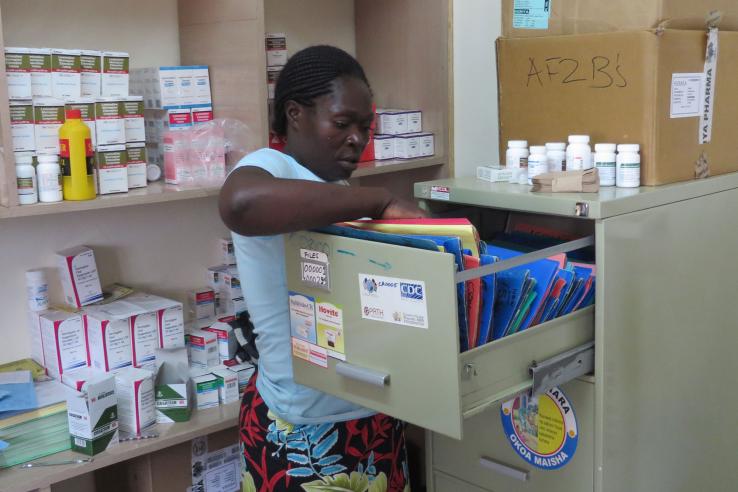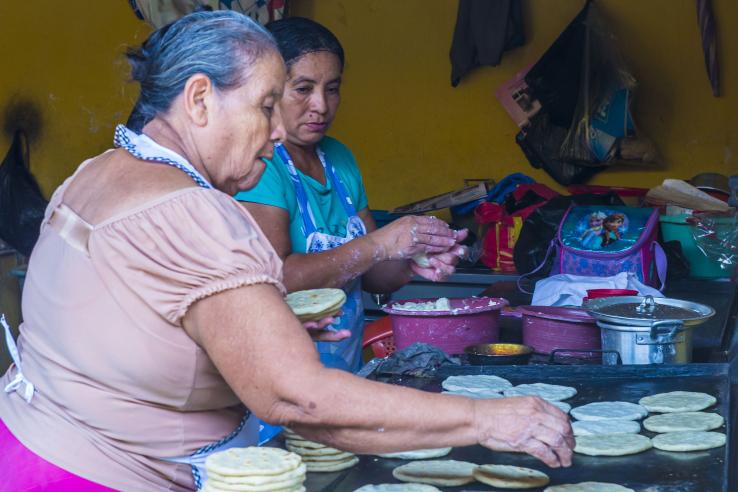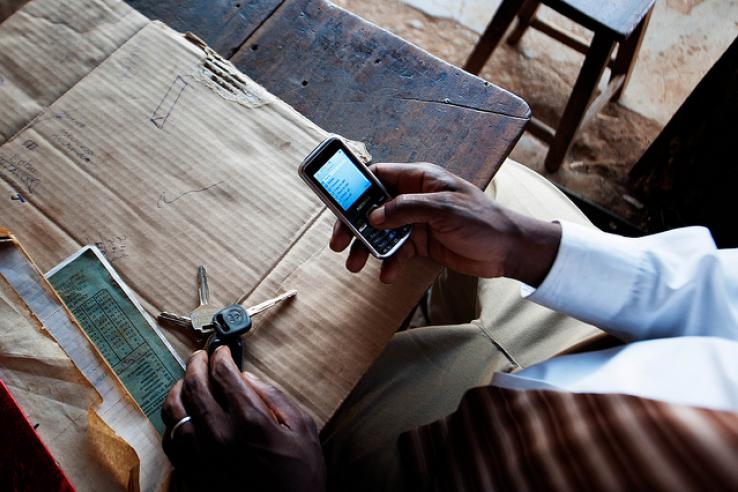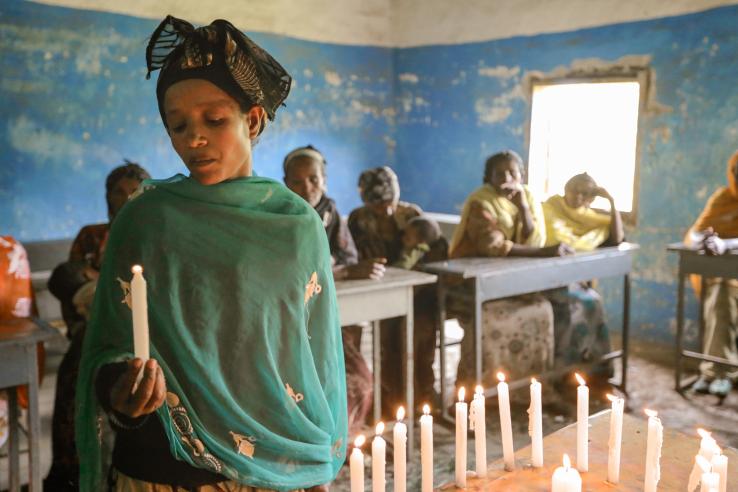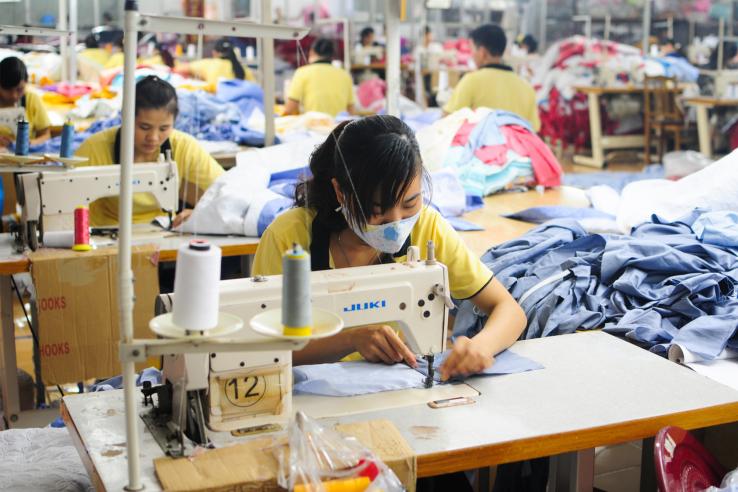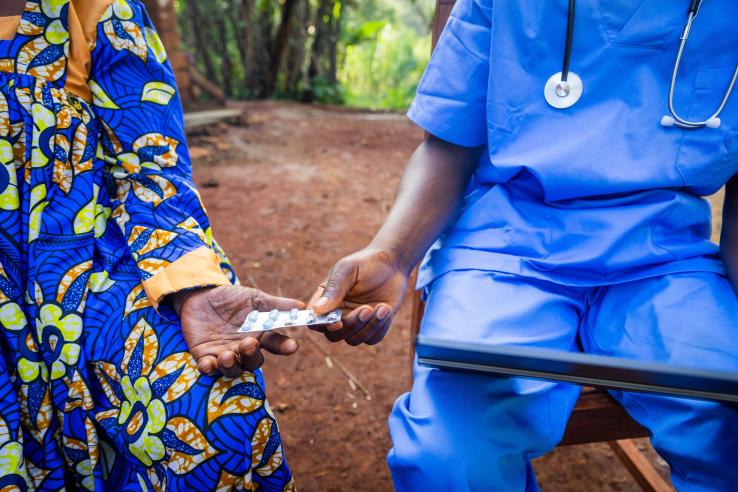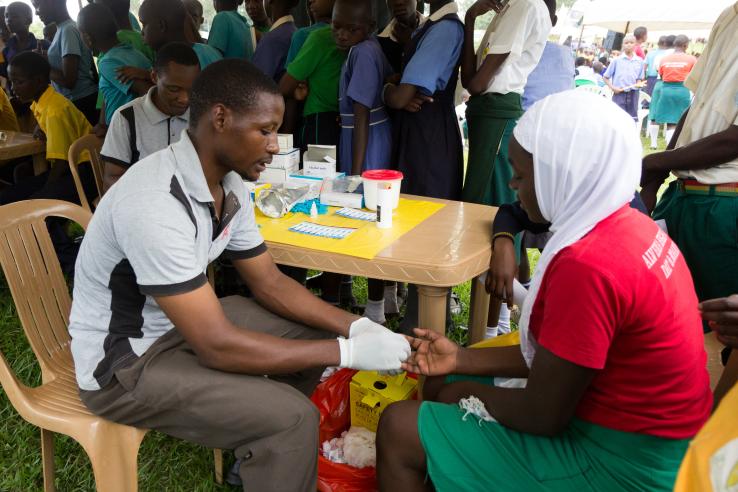Displaying 3196 - 3210 of 8334
Evaluation
Sub-Saharan Africa accounts for 24 percent of the global burden of disease. While private clinics are the first source of care for many Africans, the quality of care offered in private facilities is inconsistent and often weak, and the private healthcare sector faces a wide host of challenges. In this study, researchers will evaluate the impact of a multi-pronged private healthcare initiative on healthcare utilization, quality of care, clinic financial outcomes, and child health outcomes in Kenya.
Evaluation
Researchers evaluated two programs to explore factors that may influence the amount of remittances people send: a temporary discount on the transaction fee and the provision of information about the returns to education in their home country. While the information about education did not change remittance amounts, the fee discount led to a substantial increase in the number of remittance transactions and the total amount remitted.
Evaluation
In Chicago, researchers evaluated an intensive two-on-one math tutoring program for 9th and 10th grade male students in public schools to assess the effectiveness of individualized instruction. Students who were randomly assigned to tutoring scored higher on math exams, earned better grades in math, and were more likely to pass high school classes.
Evaluation
Despite recent economic growth in Bangladesh, food insecurity remains widespread. Researchers evaluated the impact of an agricultural training program for farmer groups on technology adoption in rural Bangladesh, and investigated what drives adoption and who is affected by the training, both directly and indirectly.
Evaluation
Vaccination programs are considered to be cost-effective strategies to reduce child mortality and morbidity, but in many low-income countries, coverage for routine vaccines remains low. This is due to a range of possible factors including low parent knowledge about the benefits of vaccination, inadequate vaccine supply, and poor supply chain management. In Mozambique, researchers are examining the effectiveness of a mobile application-based solution that uses mobile technology to overcome these challenges and improve vaccination coverage.
Evaluation
Researchers evaluated the effect of a gender-transformative skills-building program on IPV incidence, HIV risk behaviors, and other health outcomes in rural Ethiopia. Overall, the program led to reductions in IPV when delivered to groups of men, but not when delivered to couples or to women only. Further, across all groups, the program increased support for gender equitable norms, increased equity in intrahousehold decision-making, and reduced HIV risk behaviors.
Person
Asim Ijaz Khwaja is the Sumitomo-FASID Professor of International Finance and Development at the Harvard Kennedy School. His areas of interest include economic development, finance, education, political economy, institutions, and contract theory/mechanism design. His research combines extensive...
Evaluation
Researchers evaluated whether participating in the law-making process influenced firms’ compliance with regulations in Vietnam. Firms that participated in the drafting of new regulation had more positive views of the government’s regulatory authority, were more likely to allow auditors to examine facilities, and ultimately improved compliance with factory floor regulations.
Evaluation
Researchers evaluated the effects of different medication packaging and messaging on individuals’ adherence to malaria treatment in Uganda. They found that colorful, “high quality” packaging had no effect, while adding low-cost stickers with simple informative messaging to existing packaging improved adherence.
Evaluation
Researchers randomly provided postage-paid envelopes to a subset of permanent absentee voters in San Mateo County, California in order to evaluate its impact on voter turnout. The provision of prepaid postage resulted in no net change in voter turnout because it simultaneously decreased the number of votes cast by mail and increased the number of votes cast in person.
Evaluation
Researchers introduced a Voluntary HIV Counseling and Testing (VCT) program to young females in Malawi to determine whether the program affects risky sexual behavior and school performance. They found no overall effect of VCT on risk of sexually transmitted infections or achievement test scores. However, those who tested positive for HIV had increased rates of other sexually transmitted infections, and those who were surprised by negative HIV test results experienced a significant improvement in test scores.
